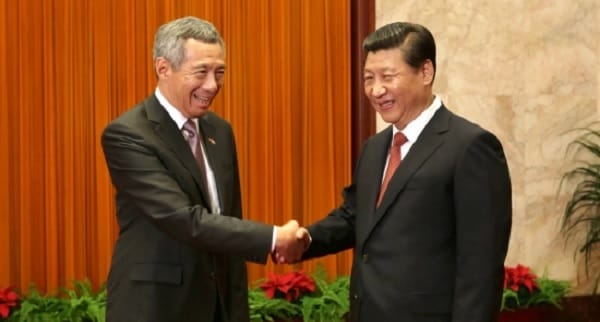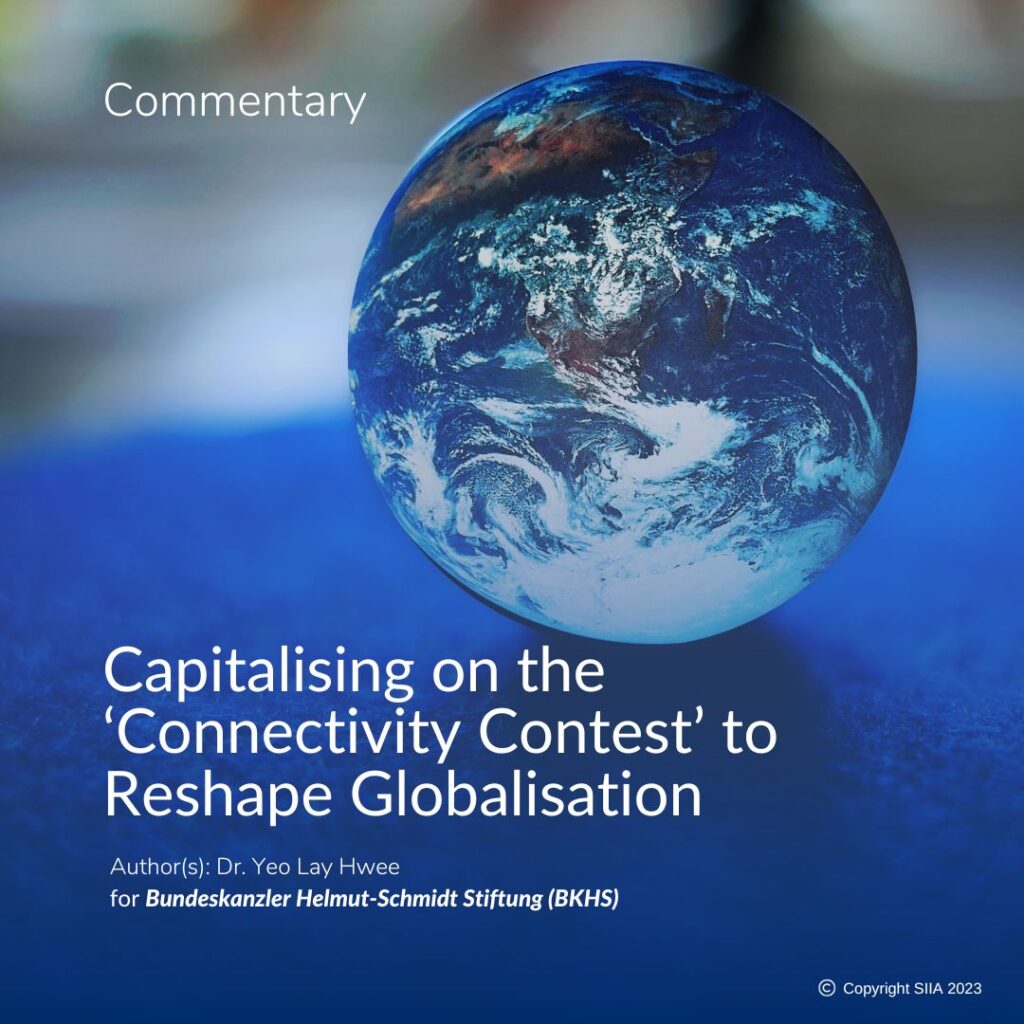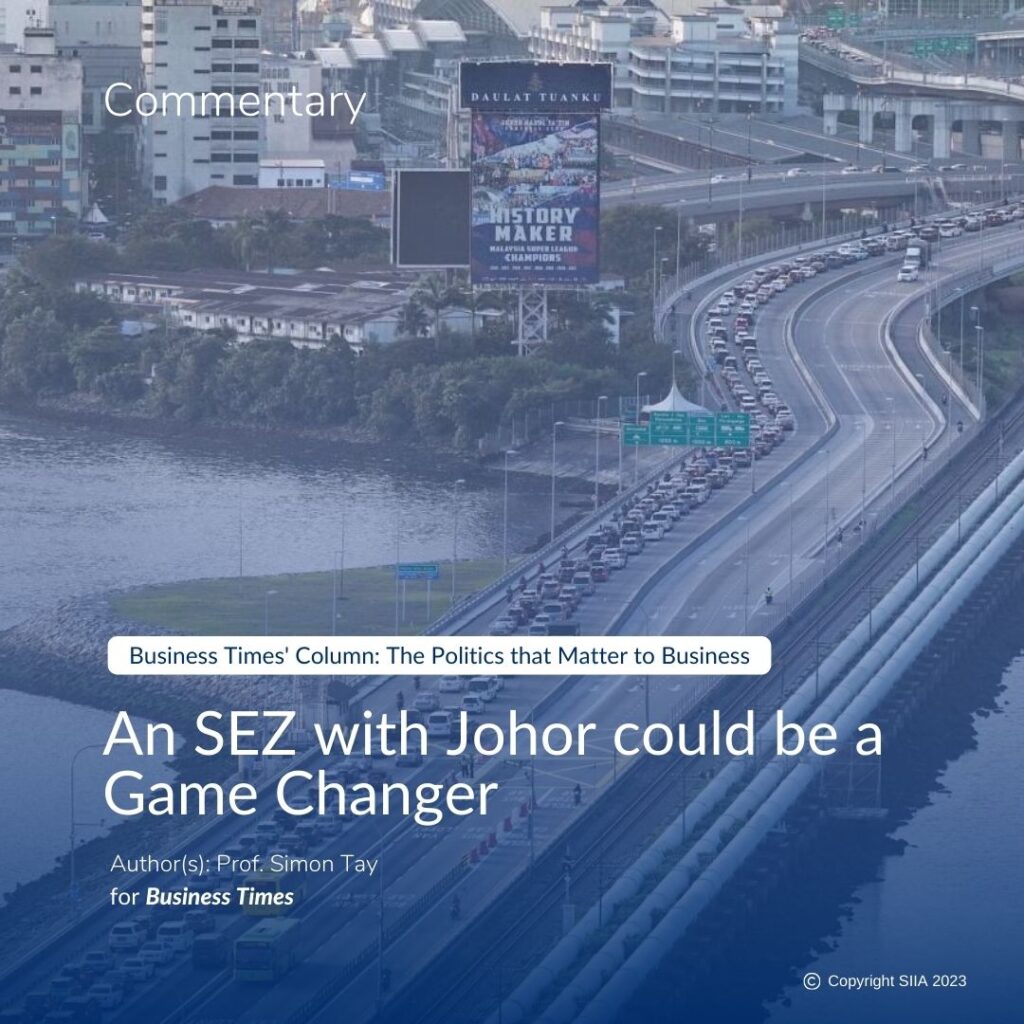When China’s President Xi Jinping arrives this week in Singapore, his first state visit to the city-state will do more than commemorate the past 25 years of diplomatic relations.
Singapore was an early interlocutor for Beijing, following the first historic meeting in Singapore between Deng Xiaoping and Lee Kuan Yew in 1978. But the two esteemed leaders have died and ties will need to adapt and change to new circumstances. Economic cooperation remains central, but security and political questions arise too. The China and Singapore bilateral relationship today is also set in a wider regional and global context.
Economic flows have grown both ways, with Singapore ranking as China’s largest foreign investor and, correspondingly, a major destination for Chinese overseas expansion.
Political ties are strong, despite perceptions by analysts who point to the absence of high-level representatives by both sides at two notable events this year — the state funeral for Mr Lee Kuan Yew in March and China’s spectacular military parade in September to mark the 70th anniversary of the end of World War II. The warm bilateral ties are evident in the slew of agreements signed last month after talks between Chinese Vice-Premier Zhang Gaoli and Deputy Prime Minister Teo Chee Hean.
Mr Xi’s visit heralds not only the past but potentially a new and more demanding phase in Sino-Singapore relations.
CONTINUING TO GROW ECONOMIC COOPERATION
Singapore has invested and assisted China’s development with two government-to-government projects, namely the Suzhou Industrial Park and Tianjin’s Eco-city.
Both sides have been discussing a third bilateral cooperation project and updates are expected during Mr Xi’s trip. Three cities are vying to be partners in this project — Chengdu, Chongqing and Xi’an — and, whichever is selected, the project can strategically improve services and connectivity to this part of China’s hinterland.
This could benefit not only Singapore, but also the wider engagement between China and the region. Potentially, Sino-Singapore cooperation can link to the bold and broad One Belt One Road (OBOR) vision first announced by President Xi in 2013 and also Beijing’s initiative to start the Asian Infrastructure Investment Bank (AIIB).
As a financial hub, Singapore is also eager to play a role in establishing overseas markets for Chinese fundraising and bonds for infrastructure. Singapore also seeks a significant role in initiatives for infrastructure and logistics under OBOR.
For these reasons, there have been calls for the two governments to upgrade the China-Singapore Free Trade Agreement (CSFTA) that was concluded in 2008. Further liberalisation and higher standards would be welcomed as ways to deepen cooperation.
This is especially against the backdrop of the recently concluded Trans-Pacific Partnership (TPP), led by the United States and Japan. Singapore has signed onto the TPP, whereas China has notably been on the sidelines.
Improving the CSFTA would potentially show Beijing’s willingness to push ahead with economic reforms by ensuring that it adheres to higher trade standards and regulations. Moreover, a stronger CSFTA can act as a building block to other regional agreements, especially as Singapore now serves as the coordinator for the wider ASEAN group and its dealings with China.
One such wider agreement that could benefit is the Regional Comprehensive Economic Partnership (RCEP). This, in contrast to the TPP, includes China and all major Asian economies, but not the United States.
While the RCEP has been under discussion for a considerable period, there has been little real progress. China and Singapore could help jump start negotiations. With more ambition in quality and an increased pace, RCEP could provide another avenue to countries that remain outside the TPP.
MIND THE GEOPOLITICS
Partnering China economically, however, has its caveats. Beijing’s growing clout has not been without controversy among its neighbours. Claims in the South China Sea, especially recent reclamation activities, are perhaps top of the list.
However, even the offers of OBOR and the AIIB have drawn concerns. While Chinese investment is much needed to connect the region, some fear that Beijing will dominate and bring in too many of its companies and workers to work on projects. Chinese policymakers have tried to reassure the region that the OBOR is meant to be a collaborative effort.
China’s growing political and economic power must be better paired with soft power. It is here that Sino-Singapore ties might help demonstrate that win-win cooperation is possible. While it is a much smaller state, Singapore must have the space to engage Beijing in a candid dialogue that can recognise and accept where core interests between even close friends differ.
Besides deepening their economic relationship, Singapore as the Association of South-east Asian Nations (ASEAN) country coordinator for China, can play a mediating role to deepen Sino-ASEAN ties. This will require building up trust and confidence between China and ASEAN, and encouraging countries in the region to seek positive outcomes on potentially thorny issues such as the South China Sea.
While Singapore continues to enjoy warm relations with Beijing, the close ties that Singapore has always enjoyed with the US should also not be put under undue scrutiny by China.
If the Sino-Singapore relationship could be developed in this way, this would give comfort to other Asian countries that it is possible to build ties with Beijing that are closer but not subordinate to its demands.
Today’s China is far stronger and more confident and engages the world as a major and rising power.
However, Chinese leaders maintain that they seek a path towards a more sustainable development and one that fosters cooperation with its neighbours without seeking domination. If so, Singapore can remain a useful place and partner for China and the best years of Sino-Singapore relations will still lie ahead.
ABOUT THE AUTHORS:
Associate Professor Simon Tay and Shangari Kiruppalini are, respectively, chairman and policy research analyst at the Singapore Institute of International Affairs. The SIIA is an independent think tank and a founding member of the ASEAN-ISIS network of think tanks. This article was originally published in TODAY on 5 November 2015.
Photo Credit: Ministry of Foreign Affairs, Singapore




